Posted on 12/30/2025 06:00 AM (CNA Daily News - Vatican)
 A view of the coffin of Pope Francis resting before the altar at the funeral Mass on St. Peter’s Square, April 26, 2025. - Credit: Daniel Ibáñez/CNA
A view of the coffin of Pope Francis resting before the altar at the funeral Mass on St. Peter’s Square, April 26, 2025. - Credit: Daniel Ibáñez/CNA
Vatican City, Dec 30, 2025 / 01:00 am (CNA).
2025 began with Catholics around the world uniting in prayer for Pope Francis’ health as he entered the hospital on Feb. 14. He was admitted to Gemelli Hospital in Rome for a respiratory infection that progressed to bilateral pneumonia, requiring a prolonged hospitalization that lasted almost six weeks.
Soon after, on March 29, the pontiff was readmitted into the hospital with difficulty breathing. On April 21, the day after Easter, Pope Francis passed away at the age of 88 from a stroke, coma, and irreversible cardiovascular collapse, according to the death certificate published just over 12 hours after his death.
On April 26, more than 400,000 people filled St. Peter’s Square for the funeral of Pope Francis as the world said goodbye to the first Latin American pope who led the Catholic Church for 12 years.
Then on May 7, 133 cardinal electors gathered from all corners of the globe in the Sistine Chapel for the start of the conclave to elect a new pope. After four ballots, Cardinal Robert Prevost was elected on May 8 as the 267th bishop of Rome and leader of the Catholic Church. He took the name Pope Leo XIV. A Chicago native, he became the first American pope in Church history.
Here are some of the most impactful images from the papal transition — beginning with Pope Francis’ last general audience before being admitted to the hospital, the start of the conclave, and the election of Pope Leo:
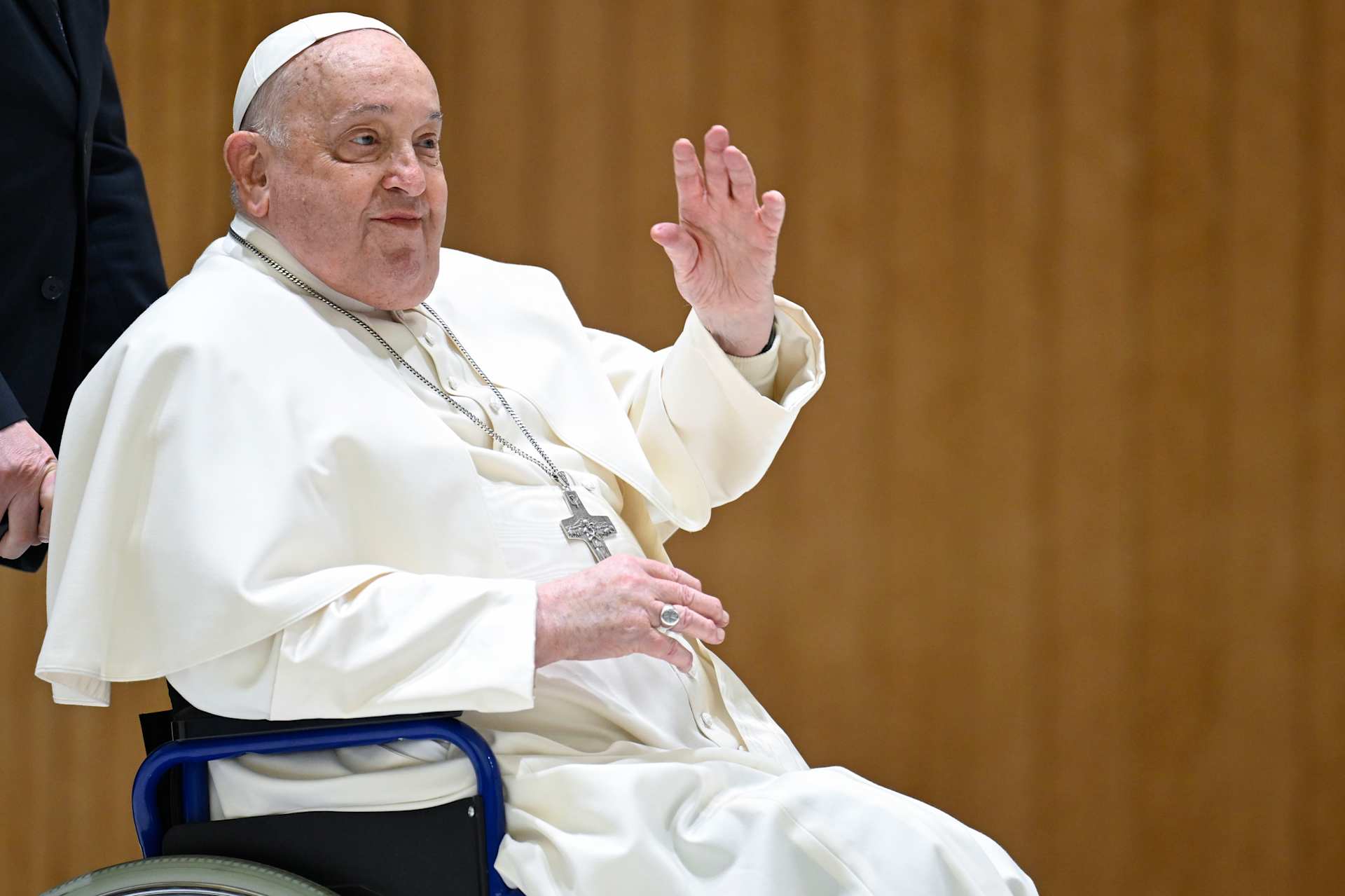
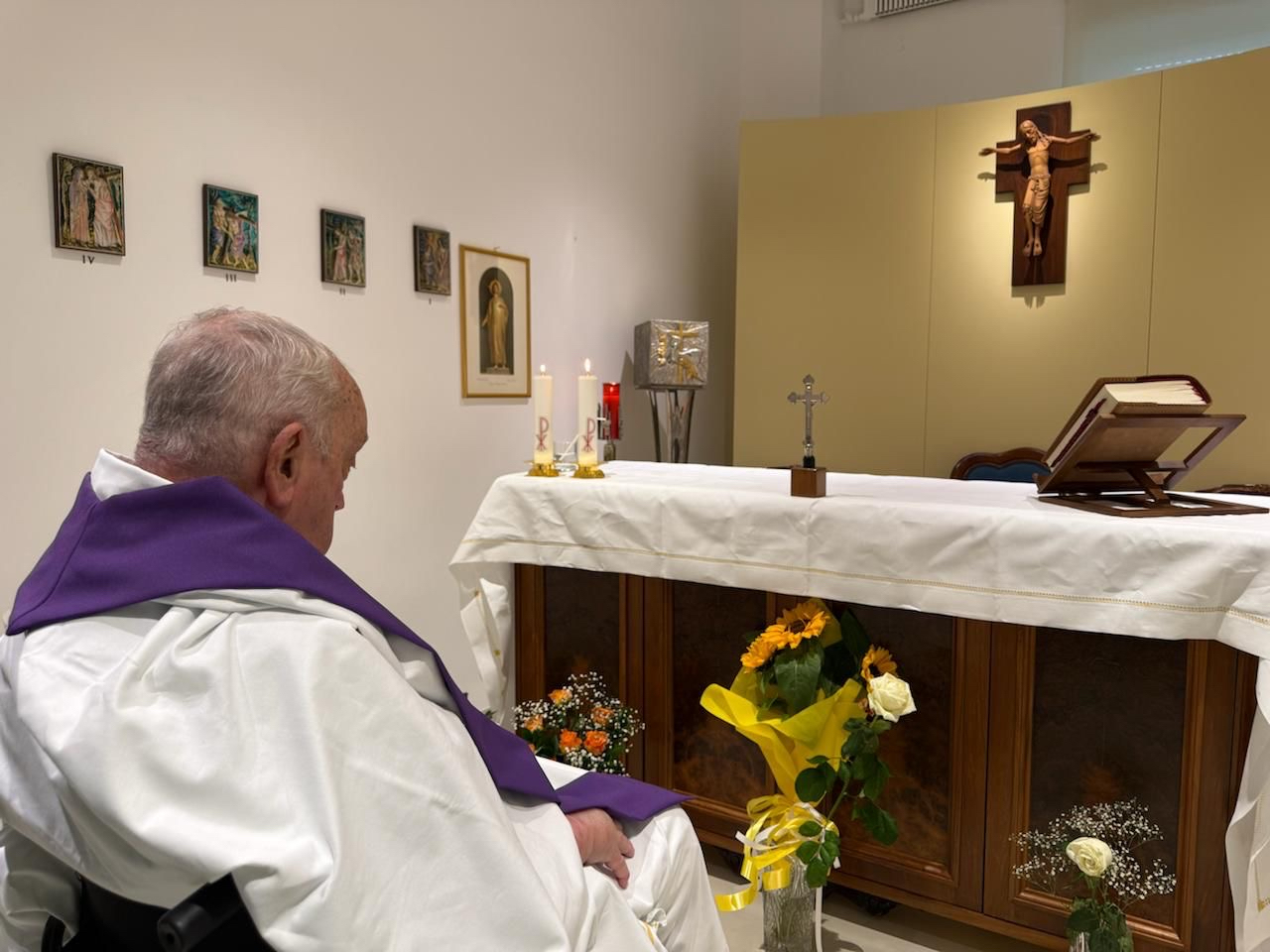
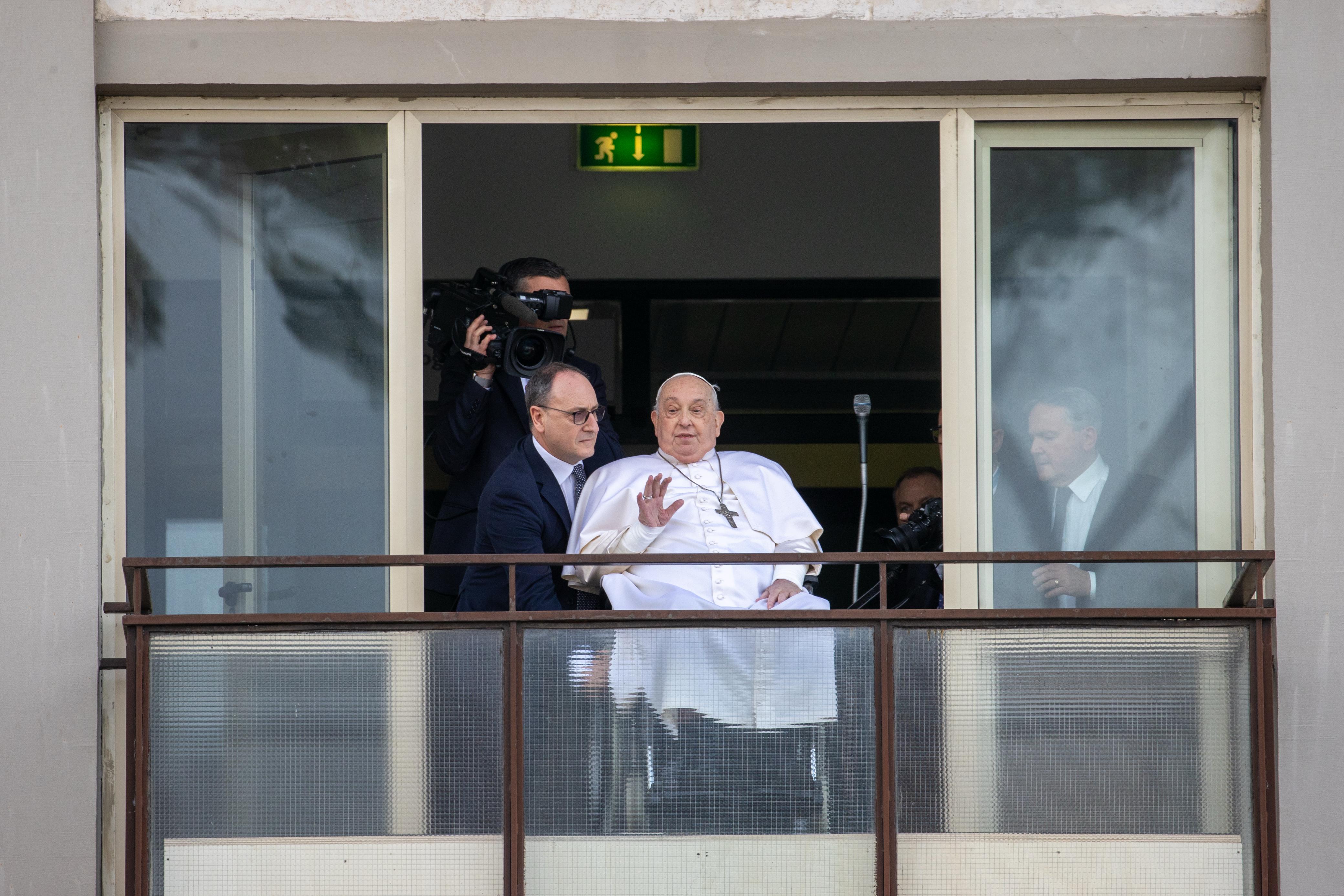
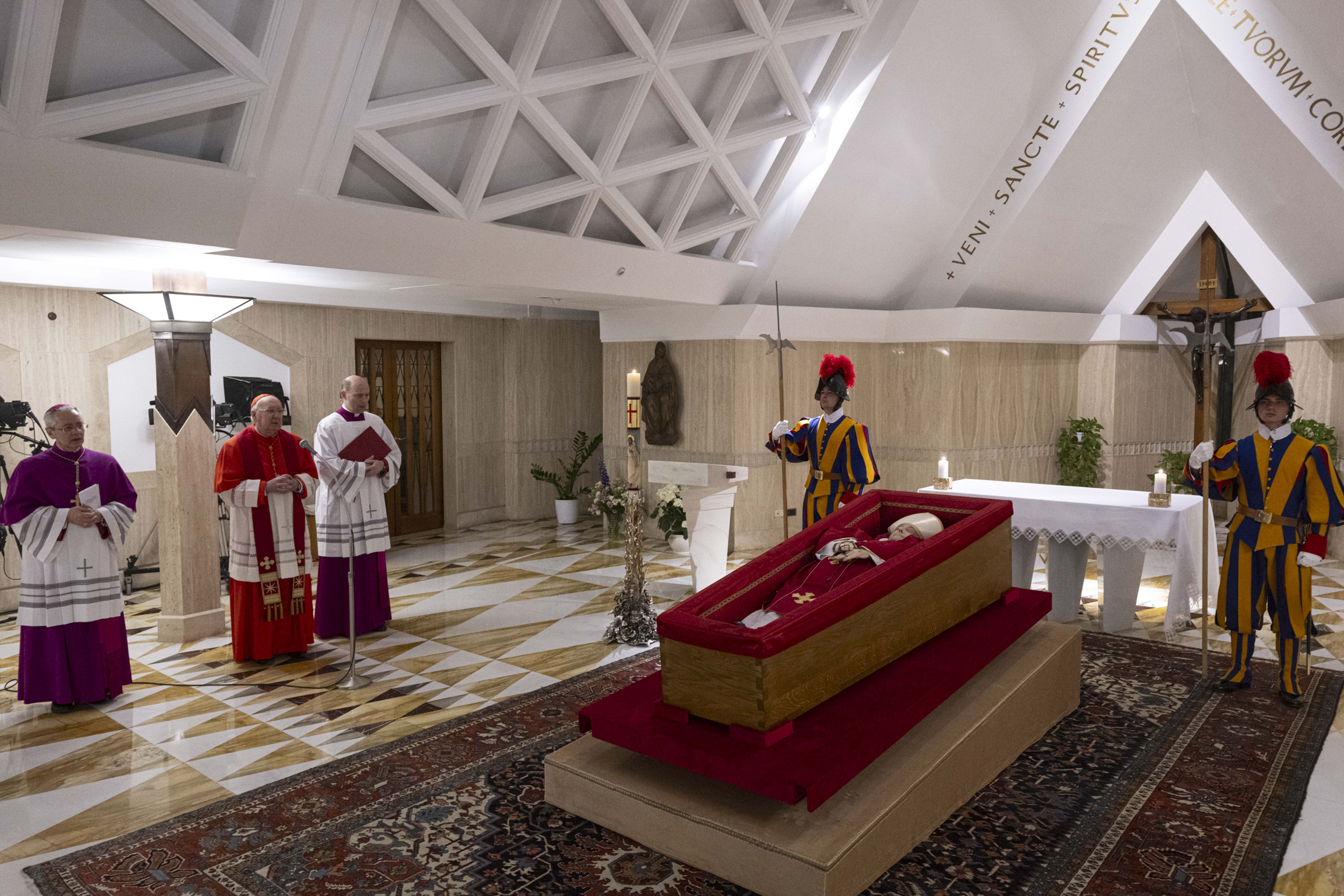
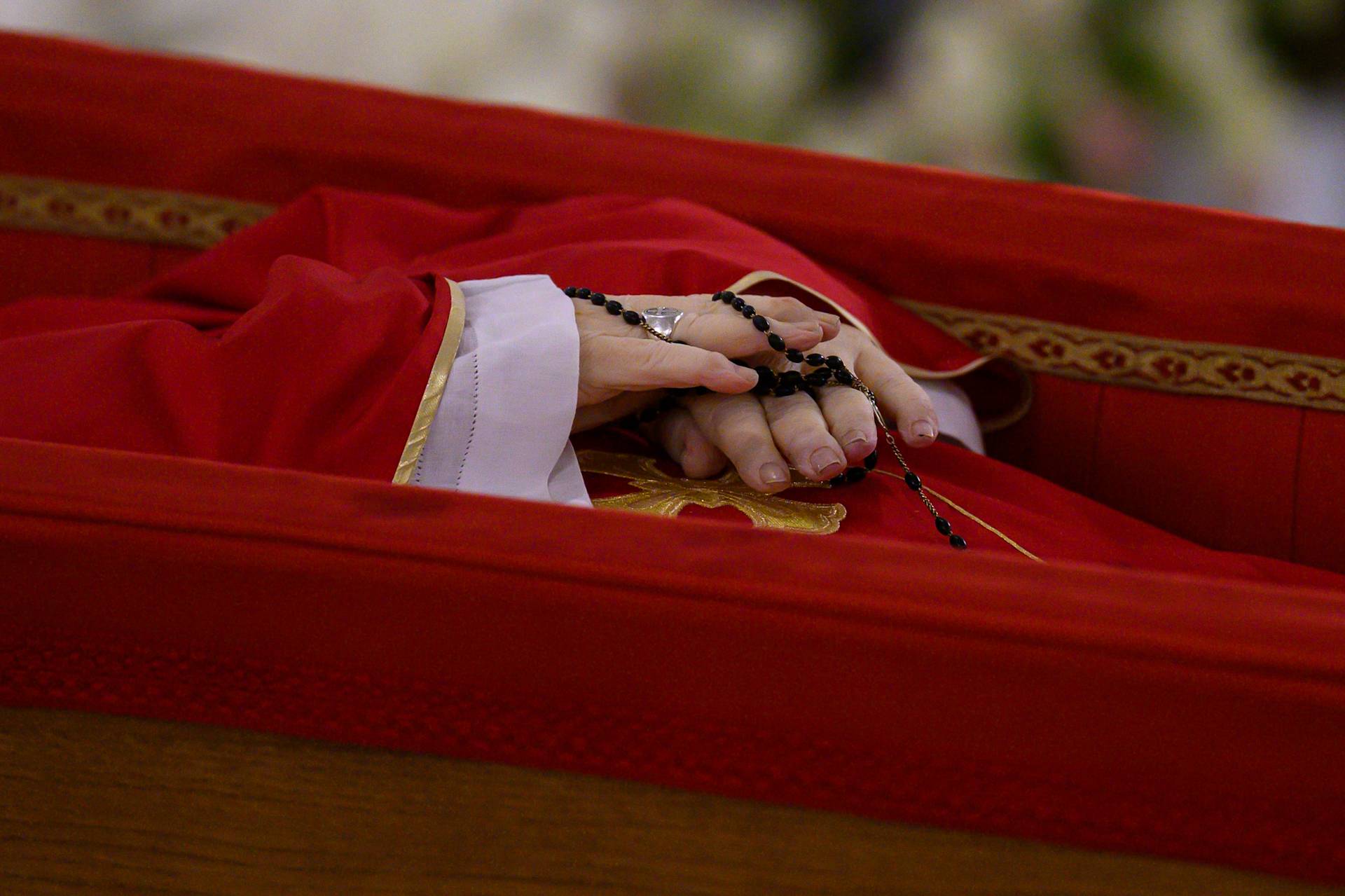
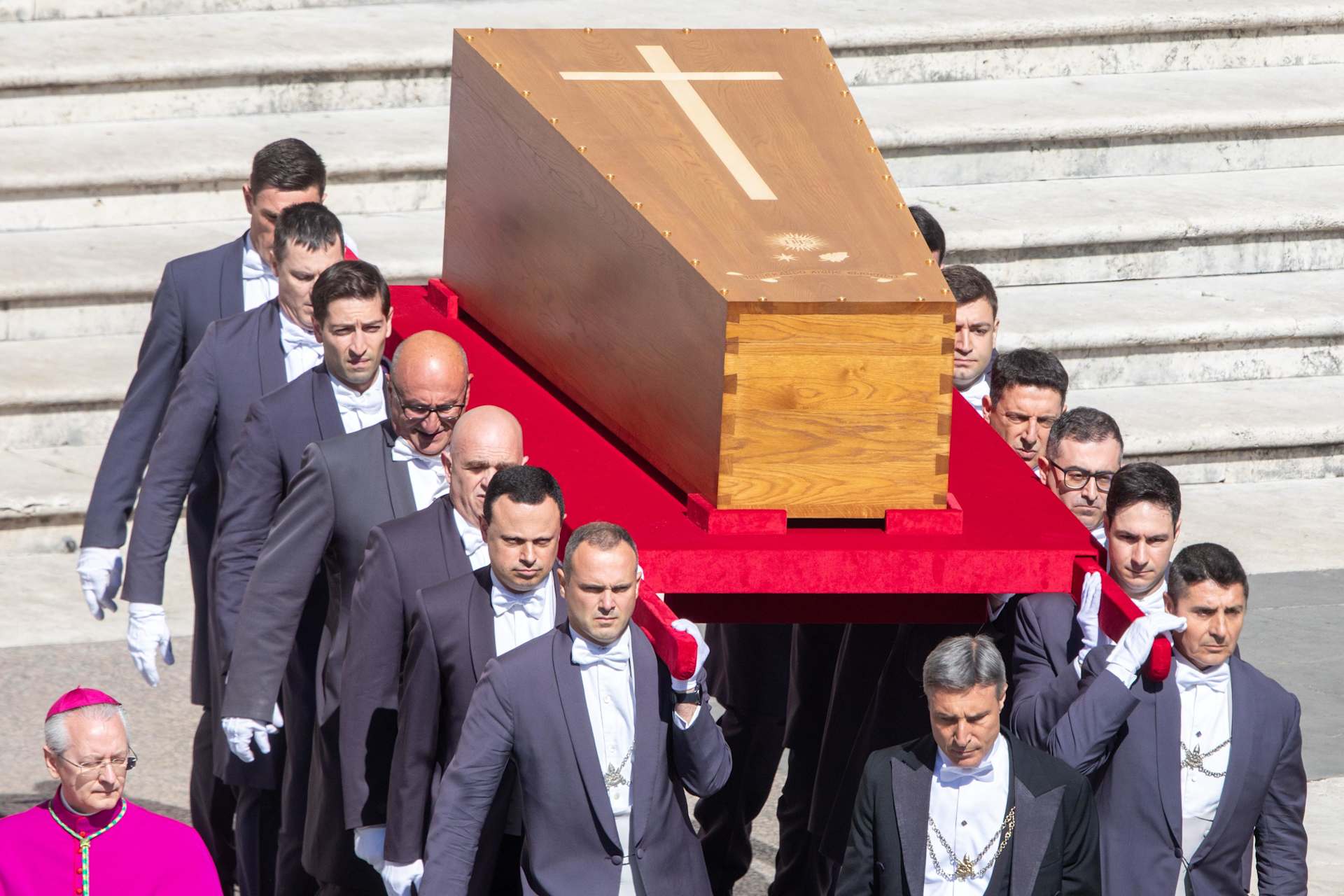
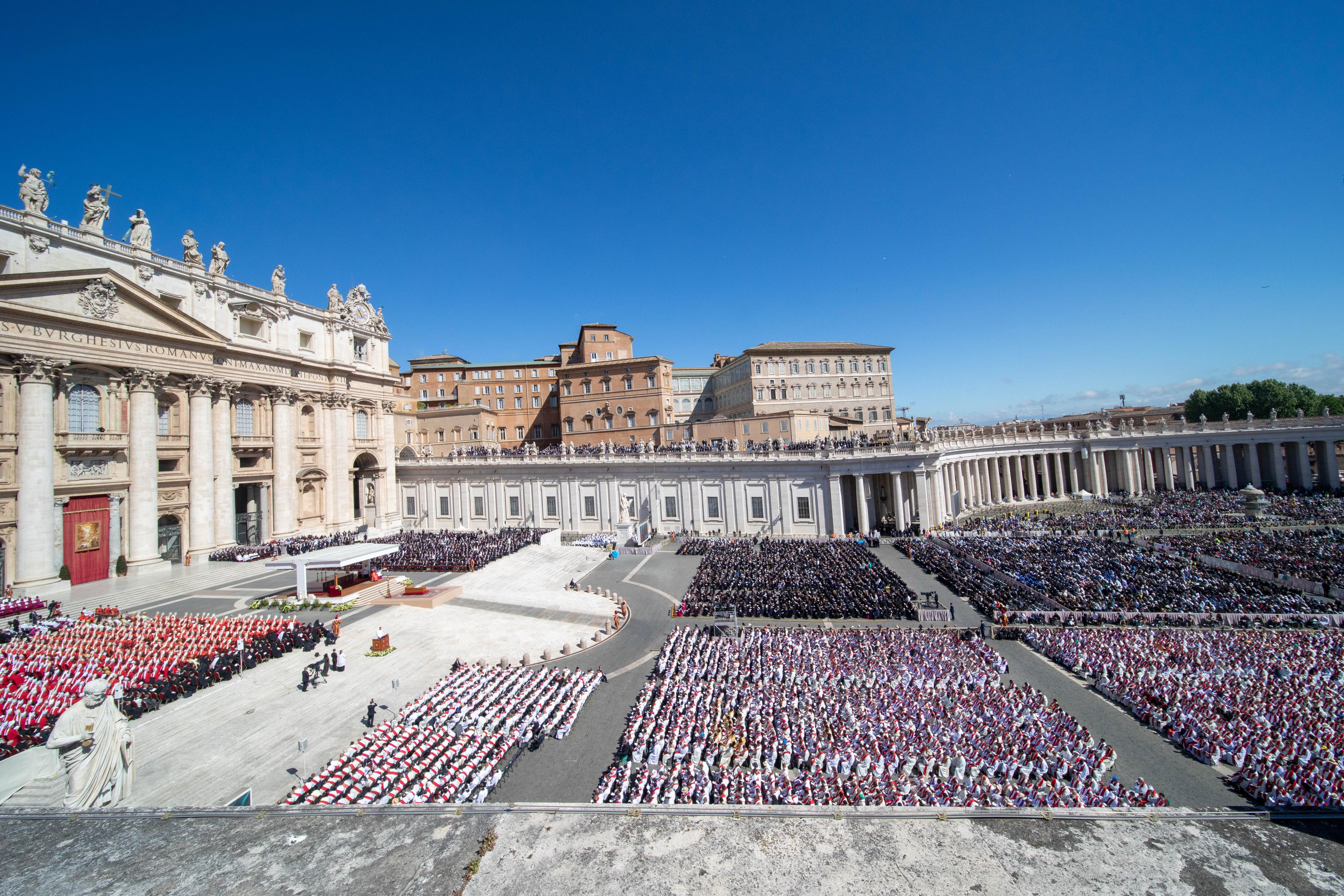
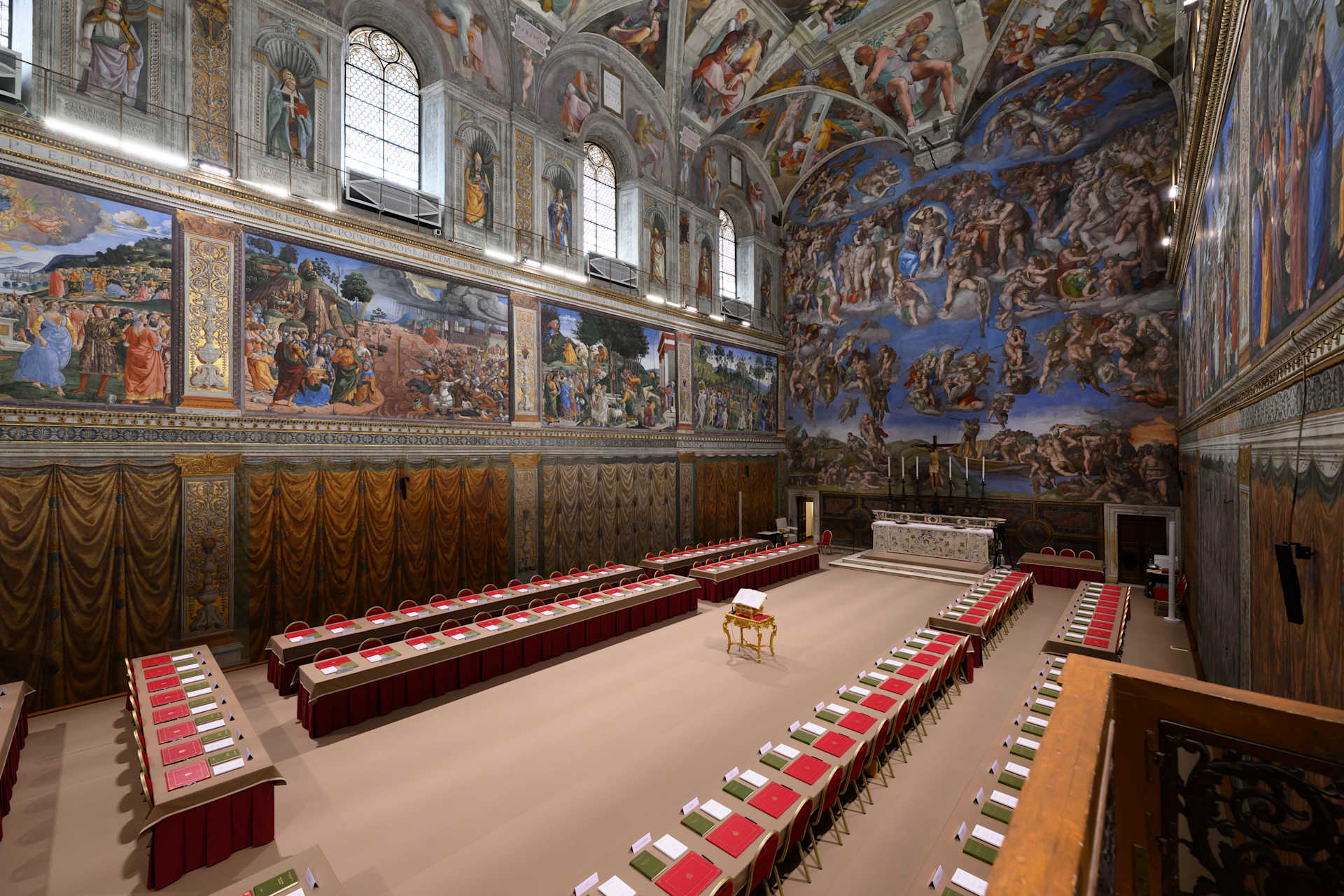
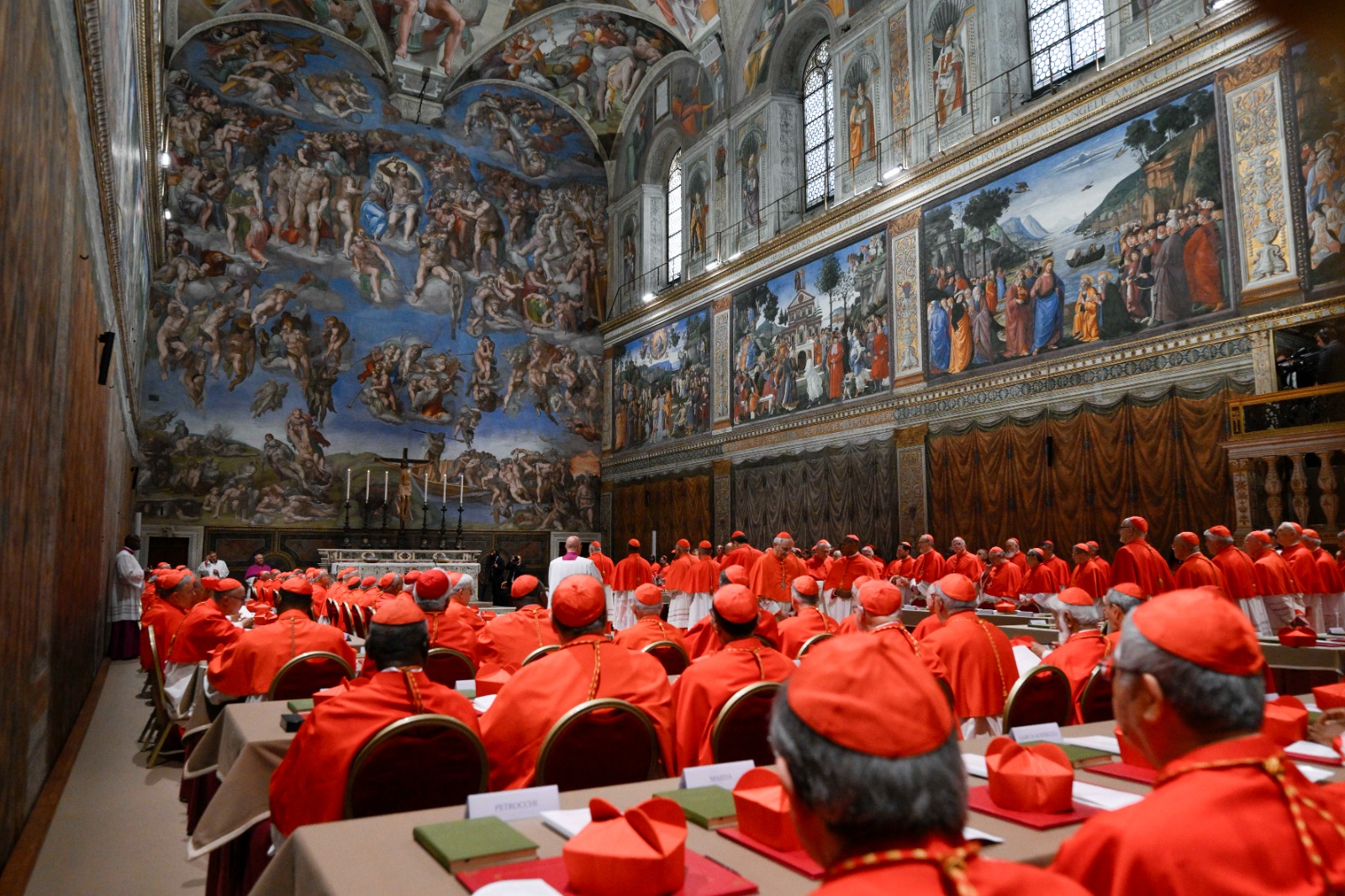
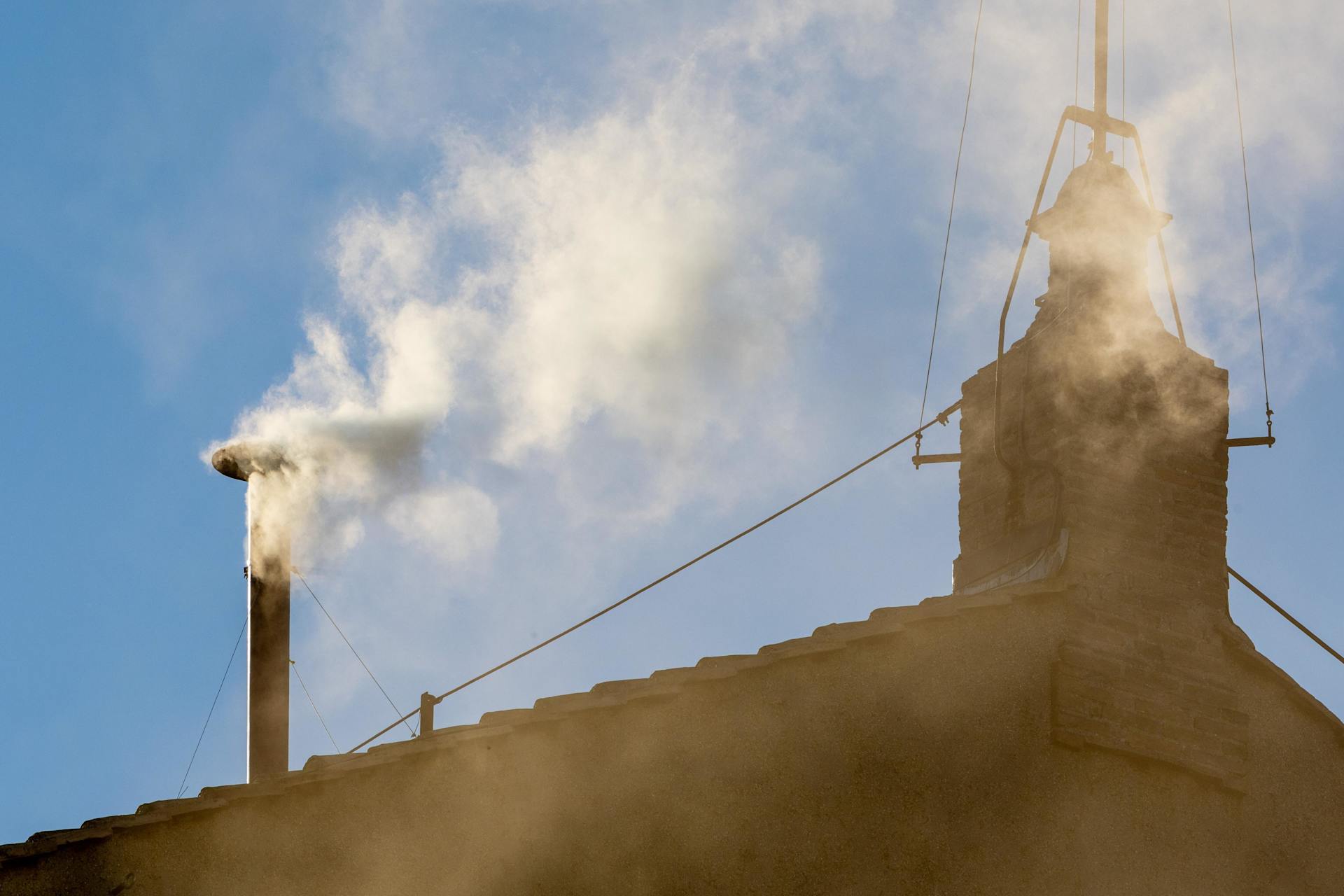
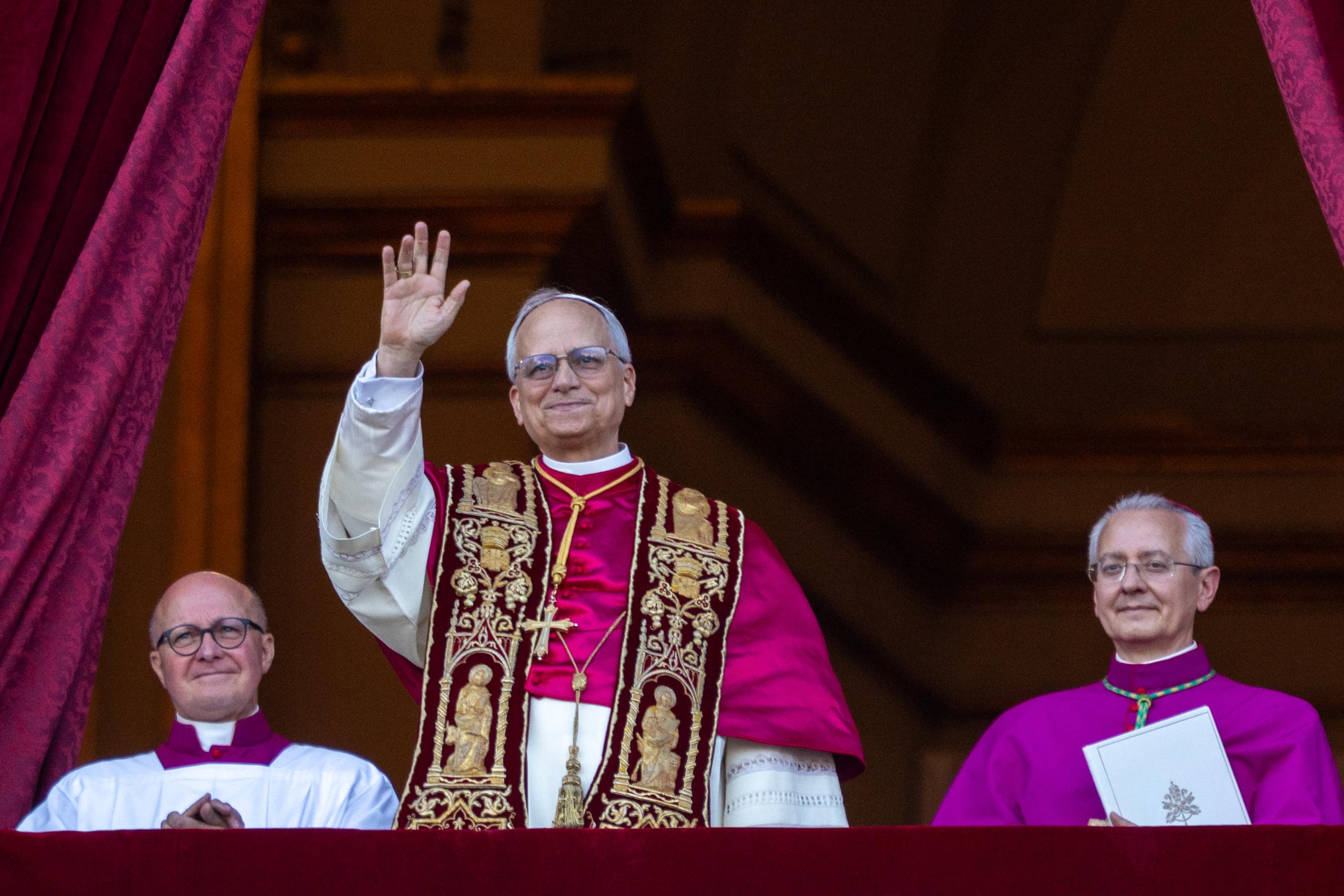
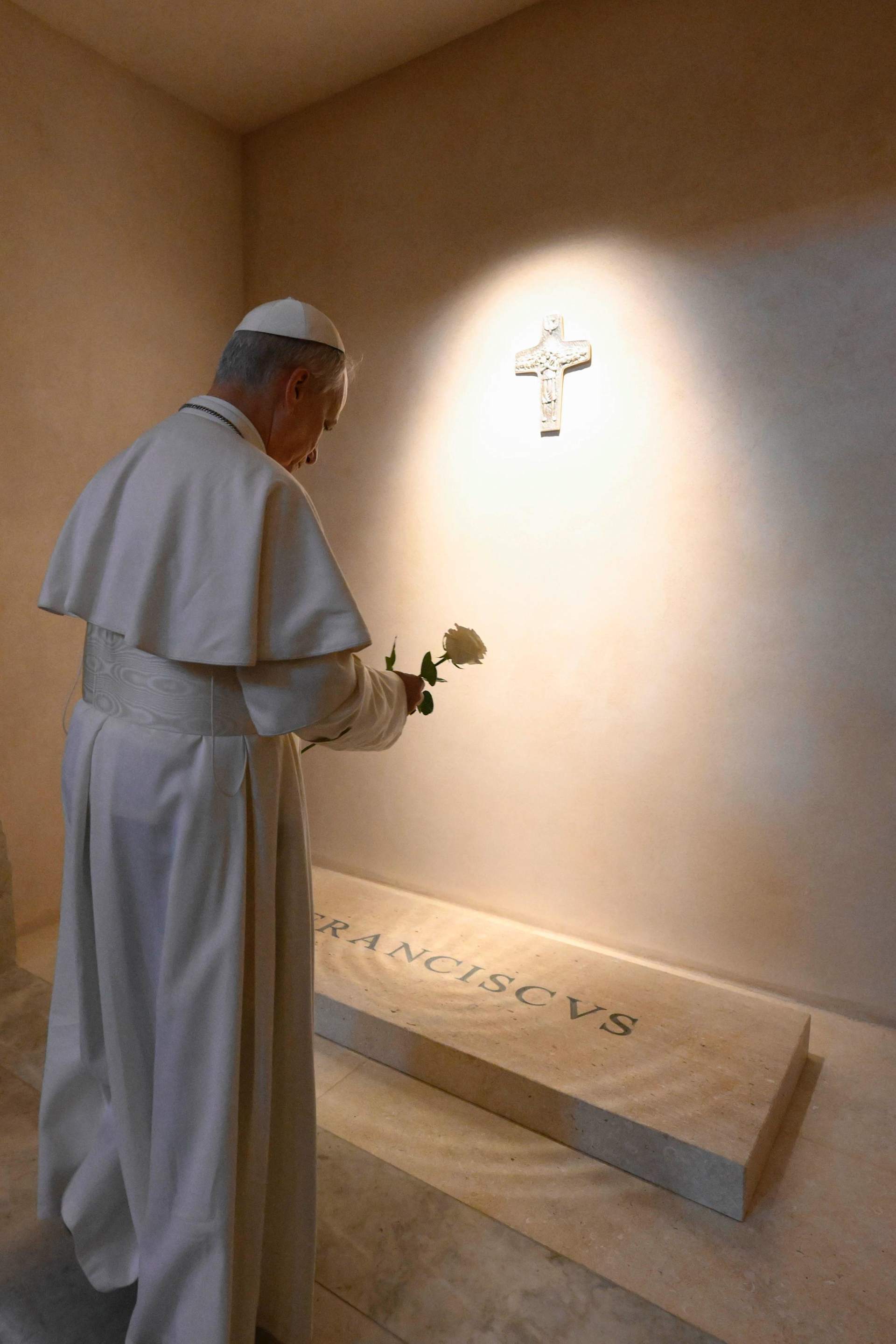
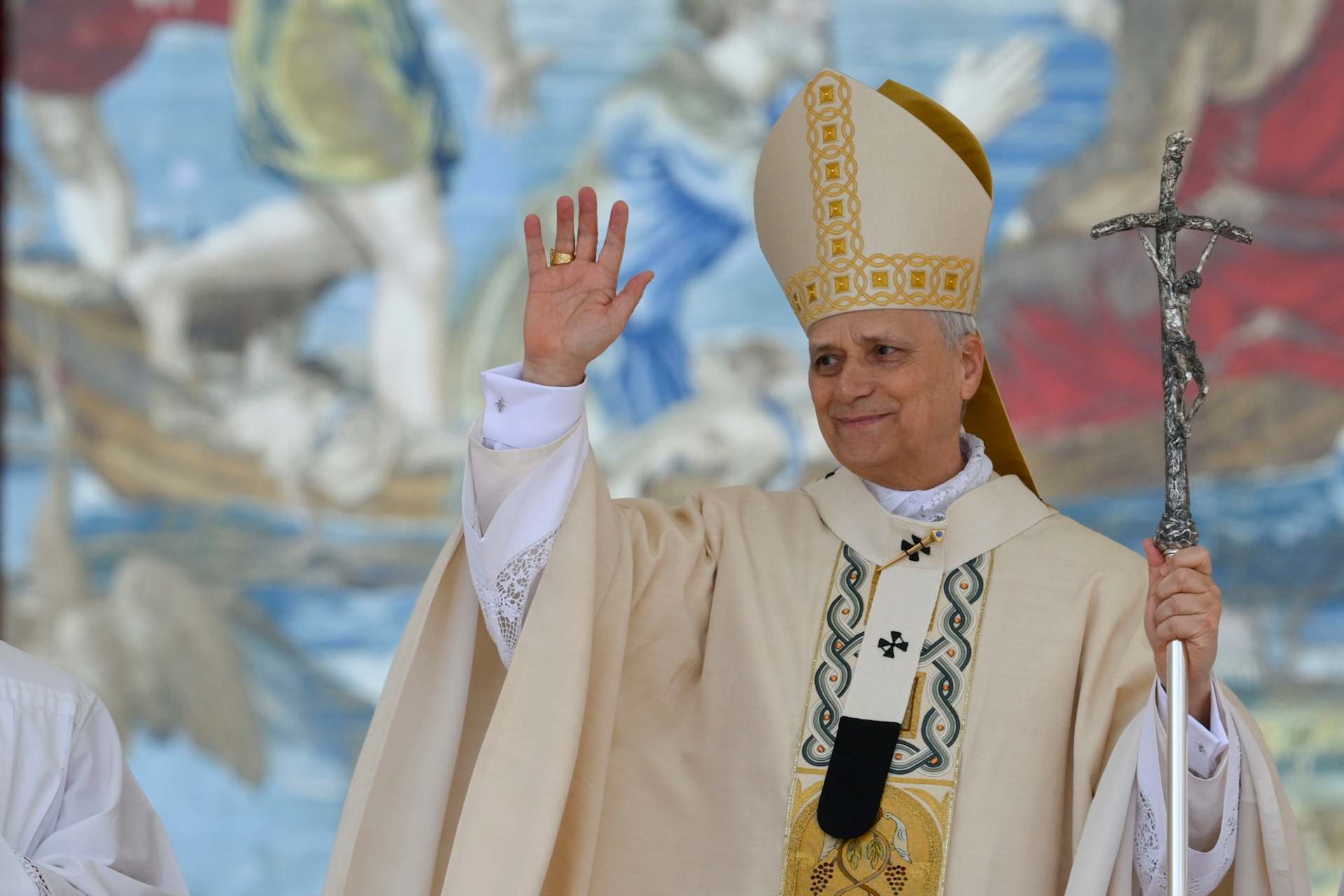
Posted on 12/29/2025 22:21 PM (CNA Daily News - US)
 Actor Jonathan Roumie, known for his role as Jesus in “The Chosen,” and Father Mike Schmitz, known for the “Bible in a Year” podcast, sit down for an in-depth interview. Credit: Ascension Presents
Actor Jonathan Roumie, known for his role as Jesus in “The Chosen,” and Father Mike Schmitz, known for the “Bible in a Year” podcast, sit down for an in-depth interview. Credit: Ascension Presents
Dec 29, 2025 / 17:21 pm (CNA).
In a new sit-down interview with Father Mike Schmitz, who is best known for the “Bible in a Year” podcast and YouTube videos on Ascension Presents, actor Jonathan Roumie spoke in depth about his role portraying Jesus in the hit series “The Chosen.”
“Everything in my life has prepared me for this role,” Roumie told Schmitz in the 43-minute-long interview, which aired Dec. 28 on the Ascension Presents YouTube channel.
Looking back at his childhood, Roumie recalled a couple of moments and experiences that deeply impacted him and his own portrayal of Jesus. He said at 12 years old he reenacted Christ’s passion and crucifixion in his backyard after watching Robert Powell’s portrayal of Jesus in “Jesus of Nazareth.”
“I had 2-by-8 planks that I found and I hammered them together and I hammered the nails where the hands would go and I painted the blood and the same thing with the feet,” he recalled. “And then I grabbed like a bush, a piece of a branch of a bush, and made my own crown of thorns and I painted blood on it and everything and I processed around to the side of my garage.”
Roumie also opened up about his experience being bullied as a child and how it led him to offer up his past trauma to God as he was reenacting the Crucifixion during filming of Season 6 of “The Chosen,” which focuses on Jesus’ passion and crucifixion.
“I was bullied as a kid a lot and I had to kind of look at what Jesus went through as a righteous man and a peaceful man and meek and humble and see just the level of devastation and terrorized bullying that he received to the point of death,” he said.
“So for me, I think, and I’ll go back and look at all those experiences I had as a kid, which might have been part of the reason that led me to reenact the Passion, as something that I could relate to and I think all of that prepared me for this role.”
He added: “I understand it now a bit more, at least I think, in my own sort of human ignorance and pride… Of course I don’t know exactly what all of this is about but it feels authentic. Like, ‘Well, I went through that as a kid and my compassion increased and my empathy increased and now I’m playing the most compassionate, empathetic human being that was God in the universe for all time.’ So I can lend that experience in his suffering and in his empathy even in wanting to forgive his enemies, which I had to do.”
“I was beaten pretty bad. So, I had to offer up all of my past trauma to him as I was recreating it, knowing that that was part of my own personal sacrifice — was my own offering for him on behalf of what he suffered for humanity.”
The actor shared that before beginning the filming of Season 6, he asked God in prayer that “if it were his will to allow me a fraction of a fraction of what he went through.”
Before traveling to Matera, Italy — the location where the Crucifixion was filmed — Roumie injured his right shoulder after falling while filming a scene. An X-ray and MRI showed that he had separated a bit of his AC joint from the clavicle, causing sharp pain.
“It was the right shoulder, so the shoulder that was carrying the beam [of the cross] on and it was extremely painful,” Roumie said. “And that was just one of many things.”
Roumie added that while filming the Crucifixion “certain adjustments” also had to be made due to pain being felt by the metal and real nails being used during filming.
“He [God] gave me exactly what I asked for — just a glimpse, just a glimpse,” he said. “And I think the thing that I got was that I got to enter into it in a way that I had never entered into it before.”
Schmitz asked Roumie how his experience portraying Jesus’ passion and crucifixion has impacted the way he attends or prays at Mass. Roumie shared that in the past year he began to feel “convicted to give more reverence to Christ in the Eucharist.”
“I started receiving on my knees and on the tongue, which I hadn’t before,” he said, adding that it was slightly “disorienting at first.”
He recalled an experience at Mass where he kneeled to receive the Eucharist but the priest asked him to stand up. He hesitated but rose and continued on with the Mass. Afterward, he asked his spiritual director if that was permissible, to which he responded that a priest “shouldn’t do that but it happens.”
After this experience, Roumie shared that he “doubled down on it and now I’m prepared to just wait as long as I need to until somebody concedes because I’m not going anywhere.”
Returning to his time portraying Jesus in the series, Schmitz told Roumie that “the show is called ‘The Chosen’ in the sense that it’s also about those who were chosen, but you were chosen and there’s something in that that has changed you. You being chosen to not only portray Jesus, but to be his disciple, an imitator of him, as St. Paul says, and that’s changed you.”
“That’s something I’m trying to wrap my head around and identify with,” Roumie responded. “It wasn’t somebody else. He picked me. And I, of course, said yes, because I needed the work initially. I didn’t know what it was going to do to me internally.”
Once the final season of “The Chosen” airs, it will have been a span of 10 years that Roumie will have been portraying Jesus. He said that this experience is something that might take “the rest of my life to unpack.”
“So, I have to give myself a little bit of grace, but it’s something that I think I will always live with. And in fact, I don’t know that I want to let it go because it keeps me connected to him, especially when the show ends.”
Posted on 12/29/2025 19:48 PM (Catholic News Agency)
 Pope Leo XIV meets with a group of pilgrims from St. Thomas of Villanova Parish in Alcalá de Henares, Spain, on Dec. 29, 2025, in the Apostolic Palace at the Vatican. | Credit: Vatican Media
Pope Leo XIV meets with a group of pilgrims from St. Thomas of Villanova Parish in Alcalá de Henares, Spain, on Dec. 29, 2025, in the Apostolic Palace at the Vatican. | Credit: Vatican Media
, Dec 29, 2025 / 14:48 pm (CNA).
Speaking to pilgrims from St. Thomas Villanova Parish in Spain, Pope Leo XIV highlighted the saint’s virtues and interior life of prayer that produced many fruits.
Posted on 12/29/2025 11:00 AM (CNA Daily News - US)
 The lethal injection chamber at the Oklahoma State Penintentiary, May 7, 2010. Credit: Josh Rushing via Flickr (CC BY-NC-SA 2.0)
The lethal injection chamber at the Oklahoma State Penintentiary, May 7, 2010. Credit: Josh Rushing via Flickr (CC BY-NC-SA 2.0)
Dec 29, 2025 / 06:00 am (CNA).
A rise in executions in the United States in 2025 occurred alongside “shifting public opinion” against the death penalty, offering anti-death-penalty advocates a hopeful sign going into 2026 even amid high levels of capital punishment.
The Death Penalty Information Center, a nonprofit group that tracks and catalogs executions in the United States, said in its year-end report that 48 prisoners were executed in the U.S. in 2025, up from 25 the year before.
The near-100% increase in executions was driven in large part by Florida, which at 19 executions counted for about 40% of the year’s total, the group noted.
The year also saw the expanded use of a controversial method of execution, that of nitrogen gas. Louisiana and Alabama both killed two condemned prisoners using this method, which advocates have said poses the risk of a slow, agonizing death. Alabama murderer Anthony Boyd reportedly took around 20 minutes to die during his execution by gas.
South Carolina executed two inmates by firing squad, the first such executions in the U.S. in 15 years. Lawyers alleged that one of those executions was botched, leading to the inmate suffering before dying.
The U.S. Supreme Court, meanwhile, “denied every request to stay an execution” in 2025, the Death Penalty Information Center noted, while several states passed laws expanding the death penalty or otherwise supporting it.
Though executions were up in 2025, data indicate a growing public opposition to the death penalty, both in poll numbers and in the declining number of prisoners condemned to death in the United States.
The Death Penalty Information Center noted that new death sentences were down in 2025, declining to 22 from 24, with “only 14 juries nationwide” reaching unanimous death verdicts.
Though the decline was relatively small, it reflects a decades-long overall trend in the reduction of death sentences in the U.S., which peaked at 325 in 1986.
A Gallup poll this year, meanwhile, found that public support for the death penalty reached a 50-year low of 52%, while 44% of Americans oppose the death penalty, the highest level recorded since 1966.
A majority of those under 55, meanwhile, oppose the death penalty.
The shift suggests changing opinions in a country known for its relatively high levels of executions. The U.S. ranked third in 2023 for the number of executions in countries where that number was known.
And while countries such as China, Iran, and Saudi Arabia regularly record significantly more executions than the U.S., many of the United States’ traditional geopolitical allies outlaw executions entirely, including effectively all of Western Europe.
A near-majority of U.S. states outlaw executions, which could help to explain decreasing public support for the practice.
Yet while opinion is shifting, Catholics notably remain largely supportive of the practice: A November poll from EWTN News and RealClear Opinion Research found a majority of Catholic voters in the U.S. support it.
Krisanne Vaillancourt Murphy, the executive director for the anti-death penalty group Catholic Mobilizing Network, admitted that 2025 was a “tough year” for pro-life advocates looking to abolish capital punishment in the U.S.
“We started off the year on a high note,” she told CNA, pointing to former President Joe Biden’s December 2024 commutations of 37 federal prisoners on death row. The beginning of the Catholic Church’s jubilee year, meanwhile, offered a spiritual bolster to life advocates.
But “executions have been happening at breakneck speed” in 2025, she said.
“The Trump administration was talking about the death penalty from day one,” she said. “They haven’t been able to do much in terms of executions [at the federal level], but it’s kind of permeated things and given political cover to elected officials in states.”
Murphy acknowledged that Florida carried out “the lion’s share” of executions in 2025. “I’ve talked to almost every Catholic bishop in the state of Florida,” she said. “They’re stumped. It’s very troubling.”
Like many bishops in the U.S., the Florida bishops regularly petition the state government to commute death sentences, though to no avail. The last clemency granted by an executive in Florida was in 1983, according to the Death Penalty Information Center.
Executive clemency is somewhat rare in the U.S., though at times it has been used dramatically, including Biden’s mass clemency order as well as North Carolina Gov. Roy Cooper’s commutation of 15 death row cases at the end of 2024.
In spite of the grim execution numbers in 2025, Murphy admitted there are “encouraging signs” for life advocates.
“The jubilee year has been a true reminder that our compass, our North Star, is life — the sanctity of life,” she said. “There’s something about a jubilee year and about the promise it holds. It has exposed vengeance’s empty promises.”
She pointed out that the executions being carried today are actually reflective of “the standard of three decades ago.”
“When you look at the sentencing of the average person being executed today, that sentence happened 25, 30 years ago,” she said. “When you look at the number of death sentences now, it’s low.” She pointed to the well-documented decline in death sentences both this year and overall from decades before.
Murphy said life advocates are looking to 2026 to continue those encouraging trends. Catholic Mobilizing Network in December joined a broad coalition of more than 50 organizations seeking to end the death penalty in the United States.
Activists are generally required to “go state by state” in their efforts to abolish the death penalty, Murphy said. She pointed to promising abolition efforts in Ohio and Oklahoma, among others.
One of the Catholic group’s key focuses, she said, is in speaking to younger generations.
“Young people don’t have the baggage around the death penalty that some older generations might,” she said. “We’re bringing exonerees and murder victim family members to campuses and younger communities and helping them really grab onto the issue and make it their own.”
“Young people are sometimes our best advocates,” she said. “They have lots of energy and a real commitment to a broad consistent life ethic.”
Among the more notable developments in death penalty advocacy in recent years was the Catholic Church’s 2018 update of the Catechism of the Catholic Church that declared the death penalty “inadmissible” and stated that the Church seeks its abolition around the world.
Pope Francis regularly spoke out against the death penalty, while Pope Leo XIV has signaled his own opposition to it. In September he said support for the death penalty is “not really pro-life,” a remark that drew controversy even as it appeared to line up with the catechism’s directive.
Elsewhere, Church leaders have turned to Catholic tradition as part of efforts to abolish the death penalty. In August the Florida Conference of Catholic Bishops called for a novena asking the faithful to pray for an end to Florida’s death penalty.
Murphy acknowledged that the 2018 catechism revision “threw some people,” though she said there are opportunities at hand for Catholics to evangelize on the need to save the lives of those condemned to die.
“There’s catechesis we need to do, and formation, about how we can be reconcilers and restorers,” she said. “It’s Jesus’ way. But we need to spend time walking with one another and figuring this out together.”
Posted on 12/29/2025 09:00 AM (Catholic News Agency)
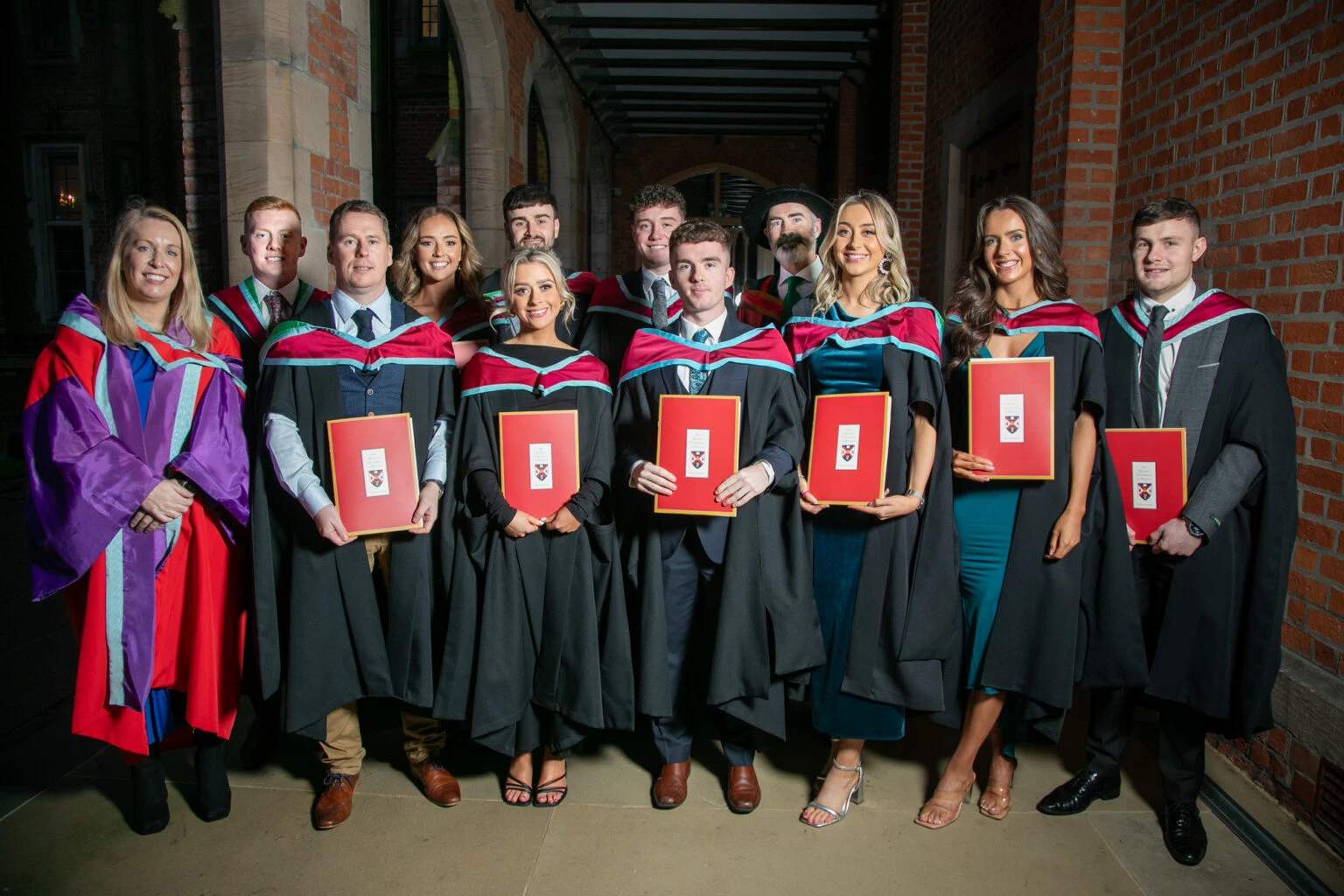 Graduates pose with their degrees at St. Mary’s University College in Belfast, Northern Ireland. | Credit: St. Mary’s University College
Graduates pose with their degrees at St. Mary’s University College in Belfast, Northern Ireland. | Credit: St. Mary’s University College
EWTN News, Dec 29, 2025 / 04:00 am (CNA).
St. Mary’s University College in Belfast is marking the 125th year of a remarkable journey that began in 1900.
Posted on 12/28/2025 14:00 PM (CNA Daily News - Vatican)
 Pope Leo XIV addresses pilgrims gathered in St. Peter’s Square at the Vatican for recitation of the Angelus on Dec. 28, 2025. | Credit: Vatican Media
Pope Leo XIV addresses pilgrims gathered in St. Peter’s Square at the Vatican for recitation of the Angelus on Dec. 28, 2025. | Credit: Vatican Media
Vatican City, Dec 28, 2025 / 09:00 am (CNA).
Pope Leo XIV has sent three trucks carrying humanitarian aid to parts of Ukraine hit hardest by bombardments, where residents are facing severe shortages of electricity, water, and heat.
Cardinal Konrad Krajewski, the pope’s almoner, disclosed the delivery to Vatican media on Dec. 27, saying the convoy carried special food that can be dissolved in a small amount of water to produce energy-rich soups with chicken and vegetables.
Krajewski described the shipment as a small gesture of closeness from the pope to Ukrainian families on the feast of the Holy Family, celebrated Dec. 28.
The trucks, he said, arrived in the Vatican shortly before Christmas loaded with supplies donated by South Korean food company Samyang Foods. As had happened on previous occasions, including during the pontificate of Pope Francis, the aid was then redirected to war zones most severely affected by strikes, where basic utilities are often unavailable.
Krajewski said the delivery underscores that the pope not only prays for peace but also wants to be concretely present with families who are suffering.
This story was first published by ACI Prensa, CNA’s Spanish-language news partner. It has been translated and adapted by CNA.
Posted on 12/28/2025 13:30 PM (CNA Daily News - Vatican)
 Pope Leo XIV greets pilgrims gathered in St. Peter’s Square at the Vatican for the recitation of the Angelus on Dec. 28, 2025. | Credit: Vatican Media
Pope Leo XIV greets pilgrims gathered in St. Peter’s Square at the Vatican for the recitation of the Angelus on Dec. 28, 2025. | Credit: Vatican Media
Vatican City, Dec 28, 2025 / 08:30 am (CNA).
Pope Leo XIV on Sunday urged Christian families to “cherish the values of the Gospel” and protect the “flame of love” in their homes against modern myths of success, power, and comfort that he said often leave people isolated and divided.
Speaking to pilgrims in St. Peter’s Square before the Angelus on Dec. 28, the feast of the Holy Family of Nazareth, the pope reflected on the Gospel account of the family’s flight into Egypt and contrasted the trust of Jesus, Mary, and Joseph with what he called the fear-driven cruelty of King Herod.
“It is a moment of trial for Jesus, Mary, and Joseph,” Leo said, adding that “the bright image of Christmas is suddenly almost eclipsed by the disturbing shadow of a deadly threat.”
The pope described Herod as “a cruel and bloodthirsty man” who is “deeply lonely and gripped with the fear of being deposed.” After hearing from the Magi that the “king of the Jews” had been born, Herod “decrees that all children of the same age as Jesus should be killed,” the pope said.
“In Bethlehem there is light and joy,” Leo noted, recalling the shepherds who “have glorified God before the manger,” but he said “none of this can penetrate the armored defenses of the royal palace, except as a distorted echo of a threat to be stifled with blind violence.”
Against that backdrop, the pope said the Holy Family reveals “the only possible answer of salvation,” namely, “God who, in total gratuitousness, gives himself to men without reserve and without pretension.”
Leo pointed to St. Joseph’s obedience in protecting Mary and Jesus, saying that “the gesture of Joseph is revealed in all its redemptive significance.” He added: “In Egypt, the flame of domestic love, to which the Lord has entrusted his presence in the world, grows and gains strength in order to bring light to the whole world.”
Turning to families today, the pope warned that “the world always has its ‘Herods,’ its myths of success at any cost, of unscrupulous power, of empty and superficial well-being” and said societies often “pay the price in the form of loneliness, despair, divisions, and conflicts.”
“Let us not allow these mirages to suffocate the flame of love in Christian families,” he said.
Instead, Leo urged families to cultivate “prayer, frequent reception of the sacraments, especially confession and Communion, healthy affections, sincere dialogue, fidelity, and the simple and beautiful concreteness of everyday words and gestures.” He said such family life can make homes “a light of hope for the places in which we live; a school of love and an instrument of salvation in God’s hands.”
After the Angelus, the pope greeted pilgrims from several Italian parishes and groups. He also renewed his appeal for peace, asking Catholics to remember those suffering because of conflict.
“In the light of the Nativity of the Lord, let us continue to pray for peace,” he said. “Today, in particular, let us pray for families suffering because of war, especially for children, elderly, and the most vulnerable.”
This story was first published by ACI Prensa, CNA’s Spanish-language news partner. It has been translated and adapted by CNA.
Posted on 12/28/2025 13:00 PM (Catholic News Agency)
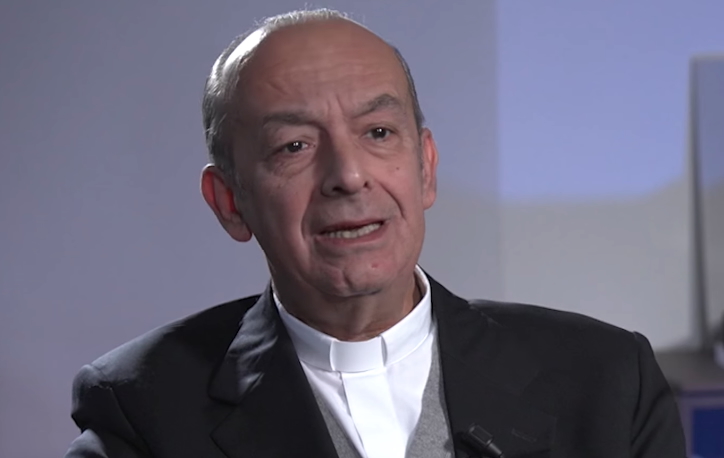 Monsignor Maurizio Gronchi. Credit: EWTN Noticias
Monsignor Maurizio Gronchi. Credit: EWTN Noticias
, Dec 28, 2025 / 08:00 am (CNA).
Vatican expert explains that the titles “Co-Redemptrix” and “Mediatrix” will no longer be used in the liturgy or official documents but can be used in popular piety if properly understood.
Posted on 12/28/2025 12:00 PM (CNA Daily News - US)
 Empty wheelchairs were used during a Nov. 4, 2025, anti-assisted suicide event in Rome. | Credit: Photo courtesy of ProVita & Famiglia
Empty wheelchairs were used during a Nov. 4, 2025, anti-assisted suicide event in Rome. | Credit: Photo courtesy of ProVita & Famiglia
Washington, D.C. Newsroom, Dec 28, 2025 / 07:00 am (CNA).
Despite opposition from advocacy groups and Catholic leaders, multiple states and countries advanced legislation in 2025 to expand access to physician-assisted suicide.
Delaware Gov. Matt Meyer signed a bill in May legalizing physician-assisted suicidefor terminally ill adults with a prognosis of six months or less to live. The law will go into effect on Jan. 1, 2026, allowing patients to self-administer lethal medication.
After the bill was signed, several disability and patient advocacy groups filed a lawsuit in the U.S. District Court in Delaware on Dec. 8 alleging that the law discriminates against people with disabilities.
The House passed a bill in May to legalize physician-assisted suicide in Illinois, and it stalled in the Senate during the regular session. After it was taken up during the fall veto session, senators passed it on Oct. 31.
The bill, which allows doctors to give terminally ill patients life-ending drugs if they request them, was signed into law by Gov. JB Pritzker on Dec. 12. The law “ignores the very real failures in access to quality care that drive vulnerable people to despair,” according to the Catholic Conference of Illinois.
Illinois joined states that permit the practice including California, Colorado, Delaware, Hawaii, Maine, Montana, New Jersey, New Mexico, Oregon, Vermont, and Washington, as well as the District of Columbia.
The New York State Assembly advanced an assisted suicide measure in May, which Cardinal Timothy Dolan called “a disaster waiting to happen.” Despite calls from Catholic bishops, the New York Legislature passed the “ Medical Aid in Dying Act” in June.
The legislation is expected to be signed by New York Gov. Kathy Hochul.
Assisted suicide has been legal in Colorado since 2016. In June 2025, a coalition of advocacy groups sued the state over its assisted suicide law, claiming the statute is unconstitutional for allegedly discriminating against those who suffer from disabilities.
The suit was filed on June 30 in U.S. district court by organizations including Not Dead Yet and the Institute for Patients’ Rights. It calls Colorado’s assisted suicide regime “a deadly and discriminatory system that steers people with life-threatening disabilities away from necessary lifesaving and preserving mental health care.”
The National Assembly approved a bill in May that would allow certain terminally ill adults to receive lethal medication. The bill passed with 305 votes in favor and 199 against.
In a statement released after the vote, the French Bishops’ Conference expressed its “deep concern” over the so-called “right to assistance in dying.”
British lawmakers in the House of Commons passed a bill in June to legalize assisted suicide for terminally ill patients in England and Wales.
In order to become law, the bill must pass the second chamber of Parliament, the unelected House of Lords. The Lords can amend legislation, but because the bill has the support of the Commons, it is likely to pass.
Legislators in Uruguay passed a bill in August to legalize euthanasia in the country. In October, Uruguay’s Parliament approved the “Dignified Death Bill,” making the bill law and allowing adults in the terminal stage of a disease to request euthanasia.
A Cardus Health report released in September found the legalization of medical assistance in dying (MAID) in Canada led to disproportionately high rates of premature deaths among vulnerable groups.
MAID passed in 2012 with safeguards and provisions that the report said Canada has not upheld. It said: “Those who died from MAID were more likely to have been living with a disability than those who did not die from MAID, even though both groups had similar medical conditions and experienced diminished capability.”
People suffering from mental illness are also dying by assisted suicide at disproportionate rates, the report said.
Posted on 12/28/2025 11:00 AM (Catholic News Agency)
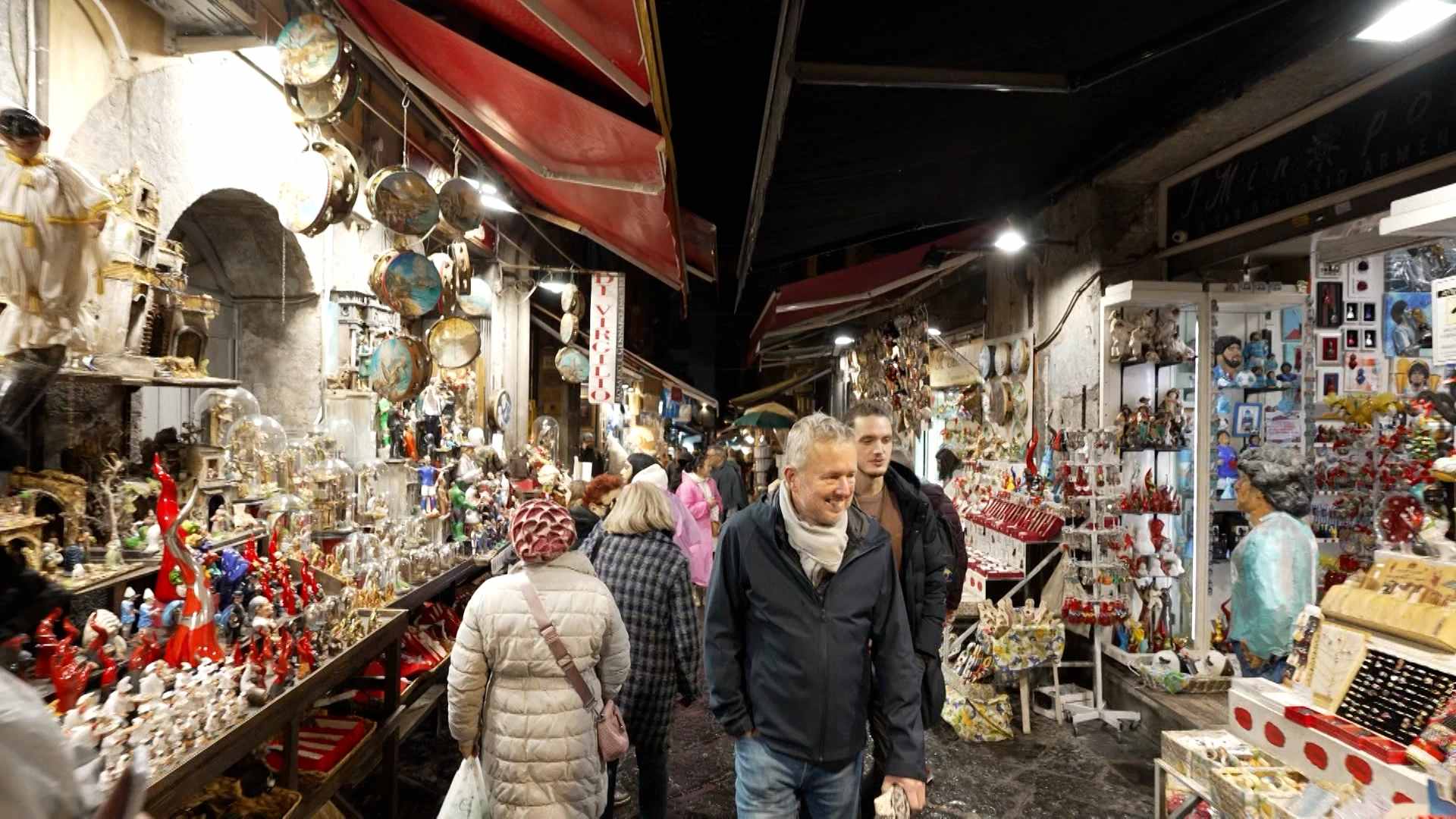 Bottega Ferrigno is located in the iconic “Christmas Alley,” part of the southern Italian city of Naples’ historic San Gregorio Armeno neighborhood. | Credit: Gianpiero Passalia/EWTN News
Bottega Ferrigno is located in the iconic “Christmas Alley,” part of the southern Italian city of Naples’ historic San Gregorio Armeno neighborhood. | Credit: Gianpiero Passalia/EWTN News
Rome Newsroom, Dec 28, 2025 / 06:00 am (CNA).
Neapolitan Nativity scenes reflect the style and dress of the 1700s in Naples, the century in which they became popularized by the nobles of the era.